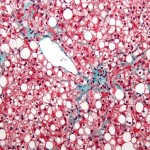Doctors Overtreating Seniors for Diabetes and Blood Pressure, Says Study
New studies published in JAMA Internal Medicine suggest doctors and patients should work together to scale back certain treatments for diabetes and high blood...
Low-Glycemic Diet Shows Greater Improvement in Glycemic Control Than High-Fiber Diet
Persons with type 2 diabetes who had a diet high in low-glycemic foods such as nuts, beans and lentils had greater improvement in glycemic control and risk factors for coronary heart disease than persons on a diet with an emphasis on high-cereal fiber.
Cancer Drug Use Leads to Diabetes
A drug widely used by cancer and transplant patients also comes with a downside: it leads to diabetes in as many as 15 percent of the people who take it.
Can Chocolate, Tea and Berries Guard Against Diabetes?
Eating high levels of flavonoids found in berries, tea, and chocolate could offer protection from type 2 diabetes.
Diabetes Drugs May Trigger Heart Failure According to New Study
Study shows that blood glucose lowering therapies pose an increased risk of heart failure directly linked to the medication or strategy being used. A comprehensive...
Common Heart Drug’s Link to Diabetes Found by Researchers
Researchers may have found a novel way to suppress the devastating side effect of one of the worlds' most widely used drugs to lower cholesterol and prevent heart disease.
Thirdhand Smoke Linked to Type 2 Diabetes
UC Riverside-led study has health implications for non-smokers living in homes that have - or have had - smokers. Thirdhand smoke exposure causes insulin...
Study May Lead to New Treatments for Type 2 diabetes
Activating a specialized type of fat, known as brown adipose tissue, may help combat obesity as well as result in better glucose control for type 2 diabetes.
Diabetic Women Get Less Intense Treatment of Heart Disease than Men
Women with type 2 diabetes and heart disease have poorer control of both diseases and receive less intensive medical treatment than do men, a large new study found.
ALERT: Medtronic Recalls Quick-Set Plus Infusion Sets
Nationwide recall of Quick-set Plus infusion sets because of problems that can interrupt insulin flow to diabetics who use them.
Age-old Drug Points To Potential New Treatments for Type 2 Diabetes
An age-old drug may point to a brand new way to treat type 2 diabetes, according to scientists at Joslin Diabetes Center and the University of California in San Diego (UCSD).
Columbia Study Shows Elderly With Diabetes At Increased Risk For Falling
Falling is the leading cause of accidental death for elderly people, and a new study suggests that nursing home residents with diabetes are four times more likely to fall than those who are not diabetic.
Disappointing Data for Diabetes Drug and Liver Disease
Promising initial results regarding sitagliptin, which is currently used to treat diabetes under the brand name Januvia, and it's positive effect on liver disease...
Study: Liver Signal Critical For Insulin’s Brain Action
New research identifies a key player in the body's ability to respond to insulin action in the brain by ratcheting down the export of blood sugar from the liver. Findings point to a potential new drug target for the treatment of type 2 diabetes.
Certain Diabetes Drugs Protect Against Kidney Failure
Certain diabetes drugs can reduce the risk of dialysis, transplantation, or death due to kidney disease in people with type 2 diabetes.
Morbidity Following Liver Transplant is Highest Among Obese Patients with Diabetes
Researchers report that morbidity following liver transplant is highest among obese patients with diabetes, but these risk factors do not influence post-transplant survival.










